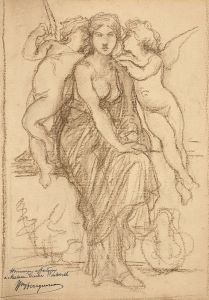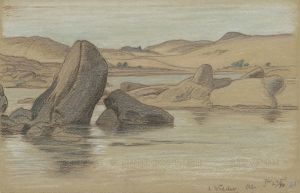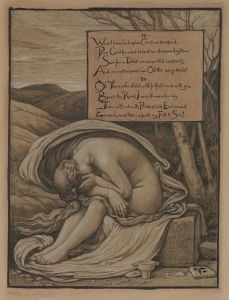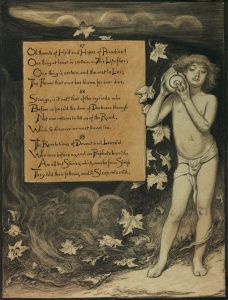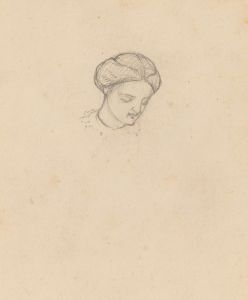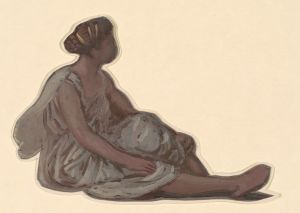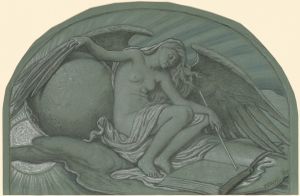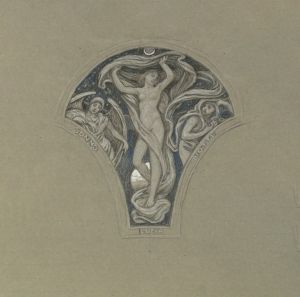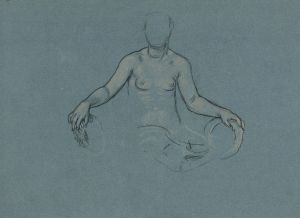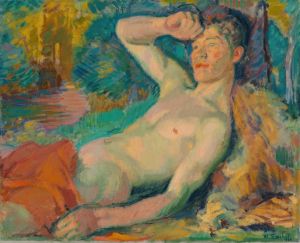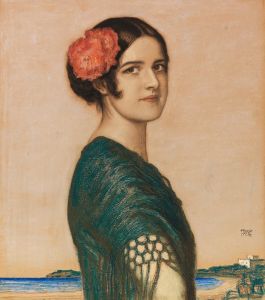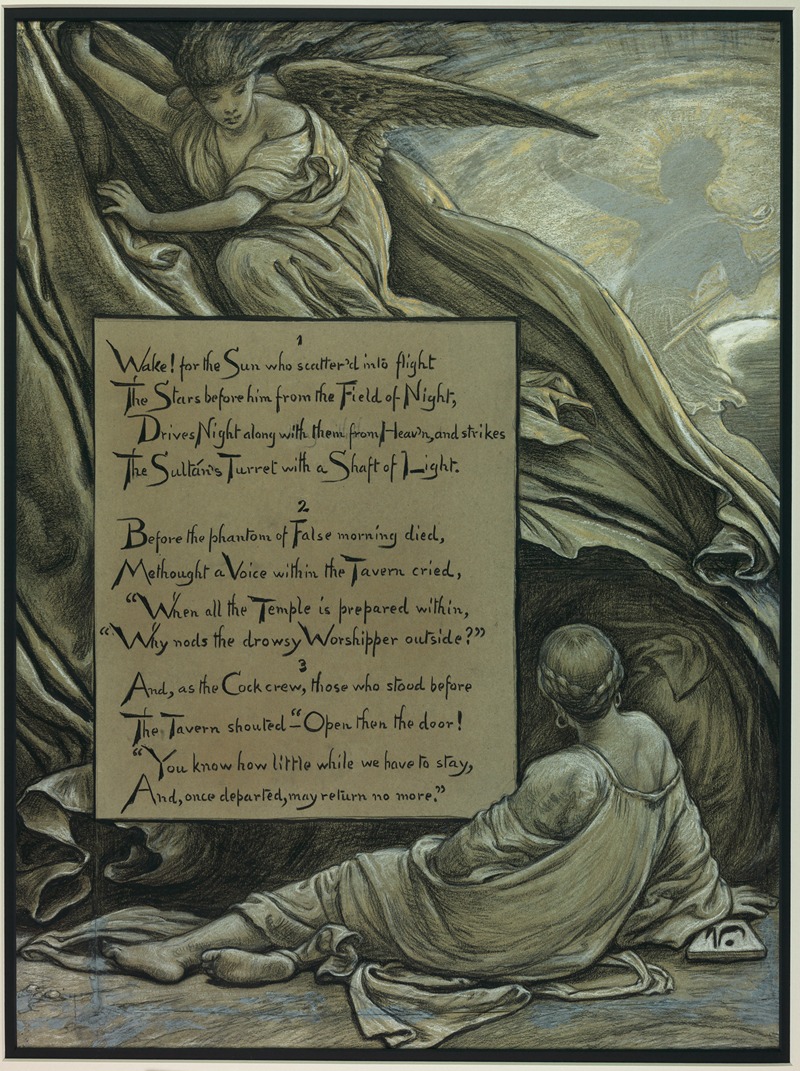
The Awakening
A hand-painted replica of Elihu Vedder’s masterpiece The Awakening, meticulously crafted by professional artists to capture the true essence of the original. Each piece is created with museum-quality canvas and rare mineral pigments, carefully painted by experienced artists with delicate brushstrokes and rich, layered colors to perfectly recreate the texture of the original artwork. Unlike machine-printed reproductions, this hand-painted version brings the painting to life, infused with the artist’s emotions and skill in every stroke. Whether for personal collection or home decoration, it instantly elevates the artistic atmosphere of any space.
"The Awakening" is a painting by the American artist Elihu Vedder, created in 1891. Vedder, known for his symbolist and visionary works, was an influential figure in the American art scene during the late 19th and early 20th centuries. His works often explore themes of mysticism, mythology, and the human psyche, and "The Awakening" is no exception.
This painting is an oil on canvas and measures approximately 36 x 24 inches. It depicts a dramatic and evocative scene that captures the essence of a spiritual or intellectual awakening. The central figure in the painting is a woman, who appears to be emerging from a state of sleep or unconsciousness. Her expression is one of revelation and enlightenment, suggesting a profound moment of realization or discovery.
The background of the painting is filled with swirling, ethereal forms that add to the sense of otherworldliness and mystery. These forms may represent the intangible thoughts and emotions that accompany an awakening experience. Vedder's use of light and shadow in the painting is particularly striking, with the central figure illuminated in a way that emphasizes her importance and the significance of the moment she is experiencing.
Elihu Vedder was deeply influenced by his travels in Europe and the Middle East, and his exposure to various artistic traditions and philosophies is evident in his work. "The Awakening" reflects his interest in the symbolic and the metaphysical, as well as his skill in creating compositions that are both visually compelling and intellectually stimulating.
The painting is part of Vedder's broader body of work that includes illustrations, murals, and other paintings. He is perhaps best known for his illustrations for the 1884 edition of "The Rubaiyat of Omar Khayyam," which brought him considerable acclaim. "The Awakening" shares some thematic similarities with these illustrations, particularly in its exploration of existential themes and the human condition.
"The Awakening" is held in a private collection and has been exhibited in various galleries and museums over the years. It continues to be appreciated for its artistic merit and its ability to convey complex ideas through visual means. Vedder's work, including this painting, remains an important part of the American symbolist movement and continues to be studied and admired by art historians and enthusiasts alike.
In summary, "The Awakening" by Elihu Vedder is a significant work that captures a moment of profound realization and enlightenment. Through his masterful use of symbolism, light, and composition, Vedder creates a painting that is both visually arresting and rich in meaning.






